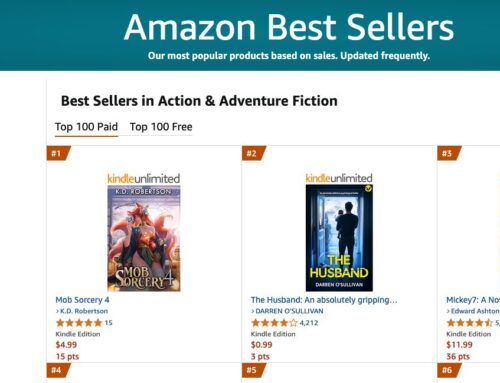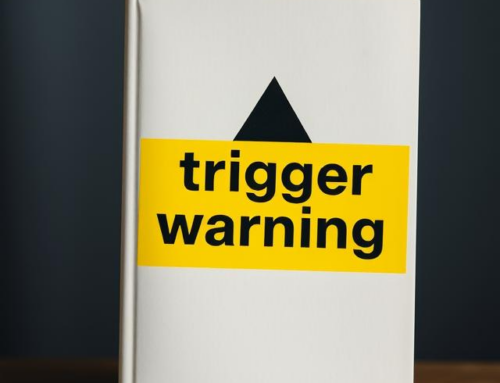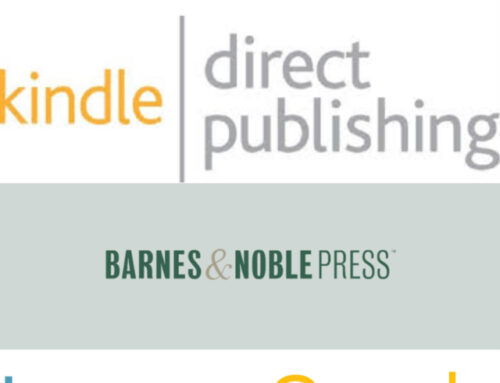I will start by stating that I believe e-textbooks are a great opportunity to improve the quality of education. But the players have to start thinking outside the box and stop resisting the new concept. E-textbooks should be a wake-up call to professors and students, publishers, authors and content providers.
I have been championing ebooks and ebook authors for a while how and listening to the educational community’s reasons for not adopting the new technology. Oh I know about the current pilot programs and the studies being conducted. Some schools are even being forced into using them because of their cost savings but the quality of education must be the key here.
I decided to take a look into the resistance to change from a different point of view. Instead of looking at the faults of e-readers and e-textbooks, let’s take a look at what’s wrong with current textbooks and how e-textbooks solve the problems.
Because of the many levels of education, I will focus on higher education for this discussion. Most college students have access to personal computers and to the Internet. By using e-textbooks in combination with e-readers or tablets, PC’s and software, they should be able to get the most ‘bang for their buck’.
Traditional Textbook Shortcomings
What are the shortcomings of traditional textbooks? We can start with the standard issues.
1. Textbooks are expensive.
2. Their useful life is short. They seem to change every year or so.
3. They are heavy. If I have to carry multiple books to class, I have a problem.
4. And of course, there is the bookstore experience. Oh I love those long lines and the beat up used textbooks.
But some way we manage to get by these problems because that is the way we have always done it.
E-textbooks: They cost less. Weight is not a problem. You can have lots of ebooks at our fingertips. They are portable. I can carry them anywhere. On my PC, I can even view multiple ebooks at the same time, each in a different window. Tablets are even adding this feature.
I have the convenience of on-line delivery anywhere and anytime I want to order and they will never be out of stock. Unlike traditional textbooks, ebooks are easy for publishers to update. They can adjust and grow with the changing environment and conditions.
Traditional Textbook Studying Process
1. I hand write in the margin of my books.
2. I highlight passages that I feel are important.
3. I have posits tabbed at the top of some of the pages just to help find something important later.
4. I carry a small dictionary with me and a large notebook to try to keep up.
5. I have manual references to Internet links throughout my textbooks. Hopefully when I key them into my PC the links are still valid.
If I don’t do these things to my textbook, sometimes I have a problem finding information.
I guess I am the typical student. I know this destroys the textbook but I am the one that needs to do this, so that it is easy for me to review come test or report time. I will deal with what I have done to the textbook when I try to resell it at the end of the semester.
E-textbooks: They are a live, digital media. I can key in class notes on my device or with public notes I can key in notes on my PC and view them on my device. I can highlight text and later I can remove the highlights. Using my PC, I can copy and paste information to a Word document and not have to re-key it into my computer.
I can tag or bookmark passages. On some devices I can even color the tags. I can easily search my e-textbook to find information. I have a dictionary and encyclopedia at my fingertips. If they can’t solve the problem, I can go on-line and use a search engine.
On my PC, I can interact with my e-textbook and a host of tools like databases, spreadsheets and a word processor with spellcheck.
e-Textbook Resistance
But the resistance abounds. We have the standard arguments.
1. E-textbooks are hard to read.
2. There are no page numbers or the numbers don’t match the paper textbook. (This has been resolved my Amazon.)
3. Ereader keyboards are too small.
4. Students will not be paying attention to the lecture.
5. Traditional textbooks have a look and feel that ereaders don’t possess.
I even see a history professor blogging that they have always done it that way so why change. E-textbooks will interrupt the flow of his teaching in the classroom. E-textbooks have no place in the History department. You know “If it is not broke, don’t fix it”.
If I was going to start anywhere, I would start in the history genre. This area has great potential for linking information and companion ebooks. And a history e-textbook is a growing adventure. One that is never ending. As more ebooks are written about history, they can be linked back to the original e-textbook which will enhance the experience.
Because I am an Equal opportunity blogger, I will occasionally highlight the dissenting point of view. I have included a link to the professor’s blog so you can make your own judgment. History e-textbooks: Not worth the trouble?
So what do I do now? What needs to happen?
Professors, Teachers and Administrators
The e-textbook concept must be accepted by professors, teachers and administration. They must understand the new technology and it’s potential and they must adapt their methods of teaching to incorporate the features of the digital textbook.
Publishers
Publishers and facilitators need to realize the potential and rise to the occasion. Printed textbooks and e-textbooks versions should be in sync, including the teacher’s edition. That should also fall into the administrator’s responsibility above. If you’re going to offer the use of e-textbooks in the classroom, they should match the paper version you’re using.
eBook Authors and Content Providers
E-textbooks present a large opportunity for ebook authors. They can write and develop companion ebooks that relate to a specific topic or a source textbook. For example, if I am studying President Lincoln in my history e-textbook and I want to know about New Salem, a place Lincoln lived in his young adult years, I might be able to get an ebook about his early years immediately on my e-reader written by an ebook author.
Students
Students should start creating their own ebooks. They could put their notes, research and ideas in an ad hoc ebook and have it as a reference during their class or while they are studying for a test. The e-textbook can be right next to it on their e-reader. They can create their own ebook with software like Kindlegen (mobi) and Calibre (epub).
Software
New software must be developed to take advantage of the digital format and authors must step up to plate and start creating e-textbooks directly for that platform. Group software integrated into the class environment using an e-reader or PC should be a must.
For example, one of the new tools released recently is NookStudy from Barnes and Noble. This free software download shows great potential. Available on your PC or Mac, you can read e-textbooks, class material, study aids, test guides and many other items. You can create your own stuff and have it at your fingertips. And, of course, you have all the computer tools you need to manipulate the information.
We need a process that insures that digital links are still valid. For example, a good links process could be maintained by publishers or authors on their website. Actually this could be a good opportunity for both. They could have readers accessing their site to update the link information and that could give them a marketing shot at a companion ebook.
Think outside of the box.
I have included a couple of recent blogs that address thinking outside of the box. Both are right on-spot.
How Kindle’s new Public Notes could change the way we read ebooks by Chris Walters
Chris addresses the large potential of new versions of ebooks using Kindle’s public notes. He sees the great potential of notes and the value they can add to the reading experience.
I think education can be the real winner with Public Notes.
Also Joe Wikert wrote a great blog, Margin notes in ebooks.
Joe discusses how important notes are. He defends the use of notes in ebooks as being an integral part of the reading experience.
Both bloggers are thinking outside of the box. How can notes help the reader to better understand the content of the book?
I even got in on the thinking by suggesting that public notes could add to a study group environment. Working with other students and the professor, the synergy could improve the communication and the thought process.
Amazon Has Some REAL Good News and They Have Some Great News for e-Textbook and eBook Users
Conclusion
E-textbooks are a great opportunity to improve the quality of education. I believe the resistance to e-textbooks should be weighed against the traditional textbook shortcomings.
Remember. Here comes the kids. You know the gadget-centric generation that will be right at home with e-readers or tablets. These devices will fall right in with their social networking and their cell phones. As a side note, I am waiting for schools to start offering a class in two thumb typing.
What do you think? Can we improve the quality of education with the use of e-textbooks? Will ebook authors get involved with companion ebooks?
View my website: HBSystems Publications
Or EMAIL at: jrm@hbspub.com
Or goto my blog: The eBook Author Corner
Get an Editorial Review | Get Amazon Sales & Reviews | Get Edited | Get Beta Readers | Enter the SPR Book Awards | Other Marketing Services






















The whole concept is great. Kids have to learn computers to stay competitive in today’s job market-although most of them are already there with computer skills. I have eight children. I’m thinking cost when it comes to books. Huge. My children in school are hopping onto the computer for reading skills starting at the first grade. My third grader’s room has a computer for every child. Personally, I agree with Mr. Moushon: the teachers are the ones needing an attitude adjustment.
James, I haven’t been a student for many years, and I doubt that I’ll ever be personally involved in the debate between dead-tree textbooks and e-textbooks. But until I read your post, I wasn’t aware that there was serious professorial resistance to the use of e-textbooks. Instructors who fear their students are perusing Facebook on their e-readers in class might ask themselves why their instruction is failing to fully capture the attention of those who are sitting through it. You’ve opened my eyes once again, and I fully agree with Blaze on whose attitudes need adjustment.